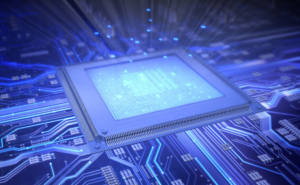Though both ICs and transistors have their place in electronics, ICs offer several distinct advantages over transistors.
Compact Size and Lightweight
The miniaturization of electronic circuits is a significant advantage of ICs. As technology has advanced, ICs have become smaller, lighter, and more powerful, enabling the development of portable and miniaturized devices.
Higher Efficiency
ICs typically have shorter interconnection paths than discrete circuits, which results in faster operation speeds and less power consumption. This efficiency makes ICs indispensable in modern electronic devices.
Improved Reliability
Integrated circuits are less prone to failure and require less maintenance than discrete transistors. Due to their solid-state construction and lack of moving parts, ICs are more durable and reliable.
Cost-Effectiveness
In terms of manufacturing, ICs prove to be more cost-effective than individual transistors. The mass production of ICs significantly reduces the cost per unit, making electronics more affordable.
Easy Replacement and Maintenance
Because an IC encapsulates an entire circuit, it’s easy to replace if it malfunctions. This ease of maintenance greatly simplifies the repair of electronic devices.
Practical Applications of IC
You’ll find ICs in nearly every piece of modern technology, from computers and smartphones to household appliances and vehicles. They’re the silent heroes behind our electronic revolution!
Use of IC in Electronics
ICs have become an integral part of everyday electronics. You’ll find them in everything from televisions and radios to cell phones and gaming consoles. Without ICs, these devices would be significantly larger and less efficient.
Role of IC in Computing
In the realm of computing, ICs play a crucial role. They form the core components of microprocessors and memory chips, powering our laptops, tablets, and data centers. The invention of the IC has truly revolutionized the computing industry.
The Future of IC
As technology continues to evolve, so too will the development and application of ICs. Current trends suggest an increasing demand for smaller, faster, and more efficient ICs. With advancements in nanotechnology and quantum computing, the possibilities are endless!
Conclusion
In summary, the advantages of IC over transistors lie in their compactness, efficiency, reliability, cost-effectiveness, and ease of replacement. As we move further into the digital age, these advantages will become increasingly critical in the design and development of new technologies.
- Why are ICs more efficient than transistors? ICs are more efficient because they have shorter interconnection paths than discrete circuits, which leads to faster operation speeds and less power consumption.
- Are transistors obsolete with the invention of ICs? While ICs have largely replaced transistors in many applications, transistors are still used in certain areas where discrete components are necessary or advantageous.
- Can a transistor be replaced with an IC? In many cases, a malfunctioning IC can be replaced, but an individual transistor within an IC cannot be replaced as they are part of the integrated whole.
- What are the main applications of ICs today? ICs are used in nearly every piece of modern technology, including computers, smartphones, home appliances, and automobiles.
- What might the future of IC technology look like? Future IC technology may include further miniaturization, increased performance, and the development of new types of integrated circuits using nanotechnology and quantum computing.
